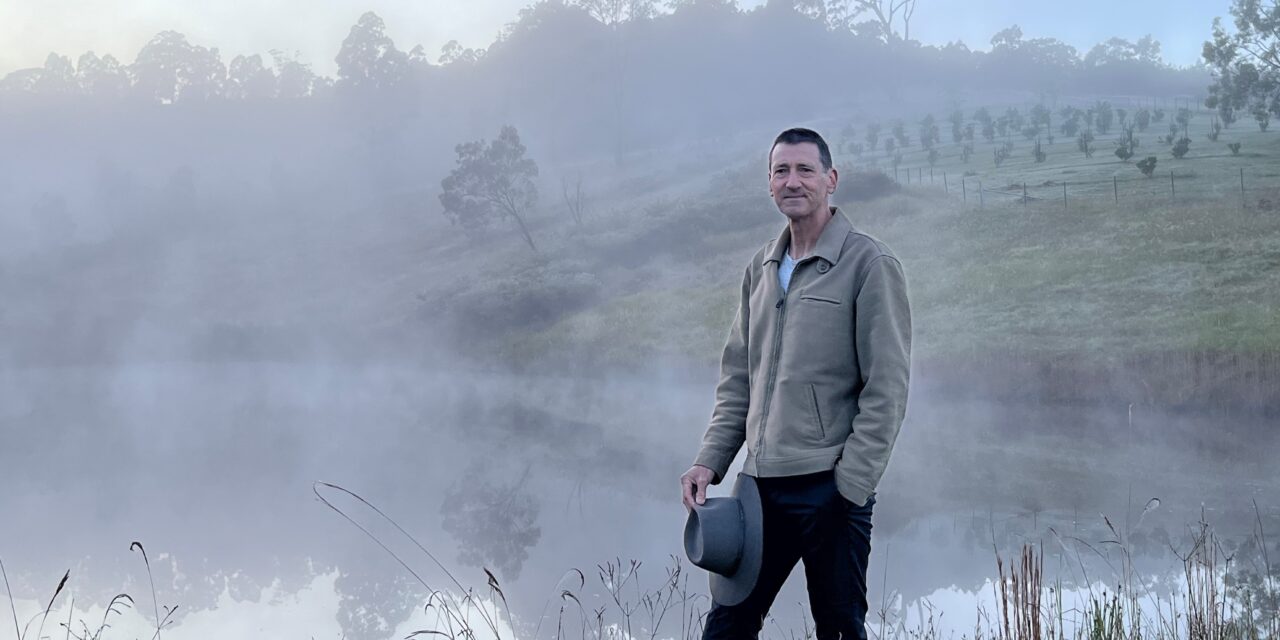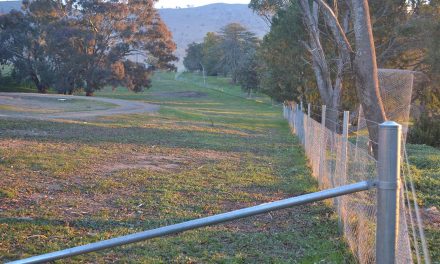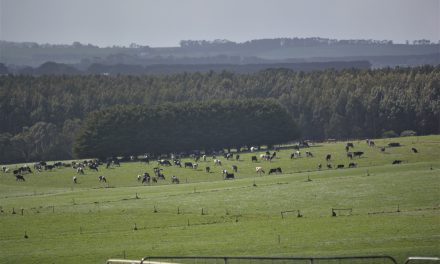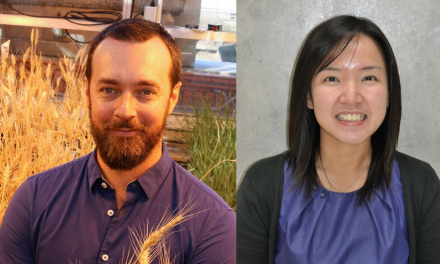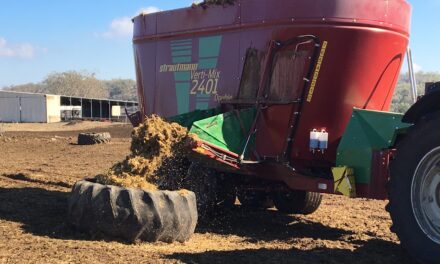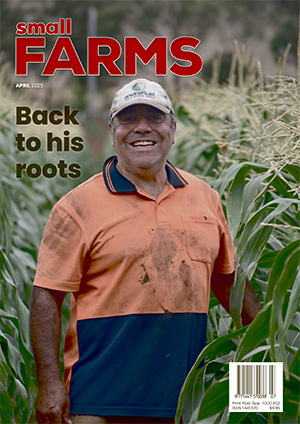Graham Creed presented the weather for the national broadcaster across 14 years before ‘retiring’ to Eagles Reach, his property in Stroud, NSW to embrace a full-time rural life with partner Bridgit.
Although his book Weatherman Goes Bush recounts just over a year as a full-time farmer, the couple originally bought the farm in 2014 and followed the somewhat typical path of city-dwellers making the change to an agricultural lifestyle, complete with the challenges of any agricultural enterprise.
Graham told Small Farms he had always known he was “a bit of a greenie”.
“But how green I was to farming, that was different,” he laughs, relishing the double meaning.
“I had no idea what I was doing, and I have learnt a lot of things over the time.”
Graham grows garlic which he plants out, waters and harvests by hand in a tenth of a hectare each winter, having started with just a single square metre plot.
He also produces culinary native fruit and native cut flowers.
His career began as a meteorologist in childhood when he constructed a home-made weather station.
“I never really recorded the information; it was more for if it was really cold I’d look for the minimum temperature and in summer I would constantly be going out to it to see what the maximum was.
“One of the first things that really sticks in my mind was Cyclone Tracy so that piqued my interest, and then from there I got weather books for my birthday.
“My family used to call me the weatherman.
“The news would come on after dinner and we would watch it as a family and my parents would tell us to shut up through the news, then my brother would want us all to shut up during the sport.
“Then it was my turn when the weather came on.”
Oddly, Graham never saw this interest in weather leading to a career, with the decision being made well after he left school and which required him to study physics.
After three years of applying for a position with the Bureau of Meteorology, he was finally accepted.
His career moved him to Lord Howe Island — his arrival welcoming the small plane with tumultuous winds in a somewhat ironic twist — and then to Wagga Wagga before the ABC beckoned.
Weatherman Goes Bush accounts for Graham’s career as a weather presenter in his wry and modest style, where he confesses a producer’s nickname for him — Green Eggs — and admits to having never watched a VHS recording that a friend made of his very first broadcast.
“I’d be thinking ‘oh that is so bad’ — I’ve never seen it and never wanted to.”
Now this doyen of news weather has become a welcome sight to Stroud locals with no hint of ‘blow in’ status commonly given to tree-changers.
“It’s a small town and we have sold produce through a shop in town so that opened up a lot of access to people who quite welcomed us into the community.
“Most of the community are ex Sydney-siders plus the long-term locals who go back multiple generations.”
Bridgit’s corporate background in customer service is a boon to the farm and comes with add-ons, such as the unlikely suggestion that even native flowers may require fertiliser.
“Bridgit does the business side of things, and a classic example of that is when we had a surplus of honey, she recommended we turn it into creamed honey.
“She also does the quality control, so people get the experience that you’d expect them to get.”
“In all the products we have learnt a couple of lessons.
“Previously we sold things in Sydney via a Facebook page, and it was quite a simple system.
“We would pick about 30 bunches and then found people didn’t know what to do with them here locally.
“The clientele coming into the shop were very different to what we had before.”
Last year’s garlic crop was Graham’s smallest thanks to the lengthy rainfall incurred by La Niña but this year’s Italian Pink variety is already in the shop.
“And this afternoon I’ll be getting the rest of the purple garlic out.
“It may as well come out now because it is so hot, it’s probably not going to do anything more.”
The biggest challenge the couple has faced was the now-established verroa mite infesting their bees, which saw all of their hives destroyed.
“We fell within the 10 kilometre eradication zone so the DPI came in and destroyed all of them.
“That was disappointing, but now I have more time in April to get garlic into the ground and we are still making creamed honey from local sources.
“There is a lot of talk now that the Federal Police has issued warrants for a property near Williamstown which was importing queens (bees) in the mail, which is highly illegal.”
Apiarists known to the couple also lost their entire hives and are hindered further with a three-year ban on bringing bees to their own properties.
“Sure, we have another business, but the book needs to be thrown at the offenders, because of all those beekeepers who have lost their livelihoods.”
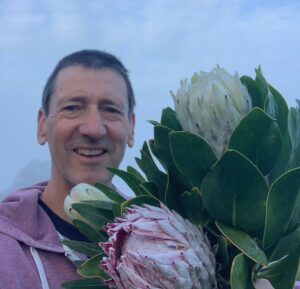
Graham with freshly cut Proteas, which he sells along with two other native species.
In addition to the garlic, Graham’s floral exploits have bloomed, doubling in production since the book was published.
He grows and sells proteas, leucadendron and leucospermum in Stroud and at the Dungog florist.
He has also dabbled in fine Indigenous foods, particularly the rare finger lime which comes from northern NSW rainforests.
“It’s unique; it has flesh like a lime, but when you split it open, little balls of lime come out.
“It’s not as tart as a normal lime and has an almost unique Australian flavour.”
Graham writes early in the book of the personal journey with his father, ending an estrangement of over a decade at the insistence of Bridgit and says the decision to overcome his own stubbornness on the matter paid off in allowing him to face the looming threat of being cut off from his own son from a former marriage.
All the pieces seemed to fall into place.
Graham was able to learn a whole new side to his parents’ divorce— albeit across a further five years — and reconnect with young Harry who finally moved in with Graham and Bridgit when he turned nine.
“I had to ask myself: ‘why was I not speaking with my father and should I do the same thing to my son?’,” he said.
“I wanted to find out why my father would do that; I just had to ask the question.
“I had done that with my Mum and now it was time to find out Dad’s viewpoint.”
“Dad remarried when I was 16 and I couldn’t deal with that, so I pushed away from that.
“Harry was born when I was 28 so I was 30 when I reconnected there; that was quite a big part of my story but not in the book.”
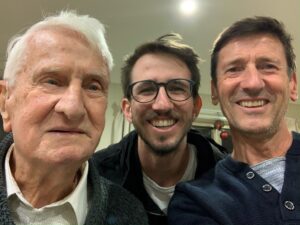
Three generations connected again: Keith, Harry and Graham Creed. “I sought some answers from my father to help me in the path I would choose to follow with my own boy.”
Graham has also found being at the ‘consumer’ end of weather forecasting quite sobering.
Having always prided himself on thinking he knew what people underneath any dire situation he broadcasted would experience, he found being on the receiving end something quite different.
“I didn’t really appreciate the emotion involved; or the impact these things had personally,” he said.
“For me it was exciting to announce the big weather events, but the emotion when you are actually there and it doesn’t happen or it floods or if there’s a fire, that surprised me.
“It’s different when you’re experiencing it first hand — it’s your stuff that’s being damaged.
“That made me think.”
Although the time for retirement is not nigh, the couple have started their next project of restoring an historic church in Stroud so they have somewhere to go down the track.
“We’d like to stay in the community,” Graham said.
At the same time, expansion of his enterprises is not something he sees as necessary.
“We are now putting a lot of the farm under a conservancy agreement and will keep the production going only in the pockets we’ve got so we’re probably not expanding too much,” he said.
“I would love to turn it into a two-cabin eco-resort.
“The wildlife is great for that.”
Will he ever sit down and watch that first weather forecast, still preserved on a video tape by a friend?
“I could sit back one day and watch it now as I am no longer in the business.
“I hope it will be a bit less cringe-worthy.”
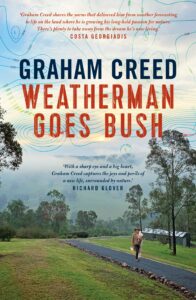
Graham Creed’s book was launched on October 3.

